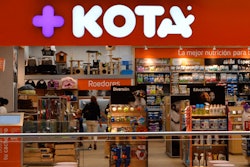As one of the most noteworthy pet industry drivers currently in force, veterinary clinics continue to expand in retail stores nationwide, reports market research firm Packaged Facts in the new report Veterinary Services in the U.S.: Competing for the Pet Care Customer, 2nd Edition.
"Today's pet industry is an 'omnimarket' where pet industry players aren't simply competing across brick-and-mortar channels and the Internet," said David Sprinkle, research director for Packaged Facts.
Omnimarket describes a new era of multiple-front competition that simultaneously crosses former business operations borders between medical vs. non-medical, products vs. services, food vs. non-food products, and pet owner demographics. This notably includes veterinary expansion into retail stores.
This new era of multiple-front competition has been fueled by booming e-commerce in pet products, but as importantly is being shaped by the competitive reactions of traditional pet product manufacturers and retailers. Pet superstores are responding to — and mass-market big boxes are exploiting — the Internet's erosion of the brick-and-mortar distinction between pet specialty and mass market by in turn collapsing the distinction between retail store and vet clinic/pet care salon, specifically because hands-on pet care is the Achilles' heel of the Internet as a pet care provider and pet industry competitor.
Packaged Facts expects hands-on pet care will remain the calling card of the veterinary sector—but selectively and progressively expanded in scope, and supplemented by Internet and digital technologies and communications, notes Sprinkle.
Among recent examples of the pet industry's omnimarket shift:
- Petco has added Thrive (in-store) and PetCoach (freestanding) clinics. It's a strategy that echoes PetSmart's longstanding affiliation with Banfield Pet Hospitals
- PetIQ is partnering with Walmart to open vet clinics in as many as 1,000 stores by the end of 2023, and subsequently is partnering with Meijer
- Tractor Supply Co. offers pop-up veterinary clinics at its locations.
Not only do these in-store clinics offer consumers increased access to veterinary care and pet medications, their presence promotes the overall concept of pet wellness, reminding pet owners of the importance of caring for their pets' health and making it more convenient to do so. Even so, such expansion presents challenges to the business success of many traditional, independent vets and to the autonomy of the veterinarian profession, by shifting the balance of power in favor of larger consumer market players and forces.

















